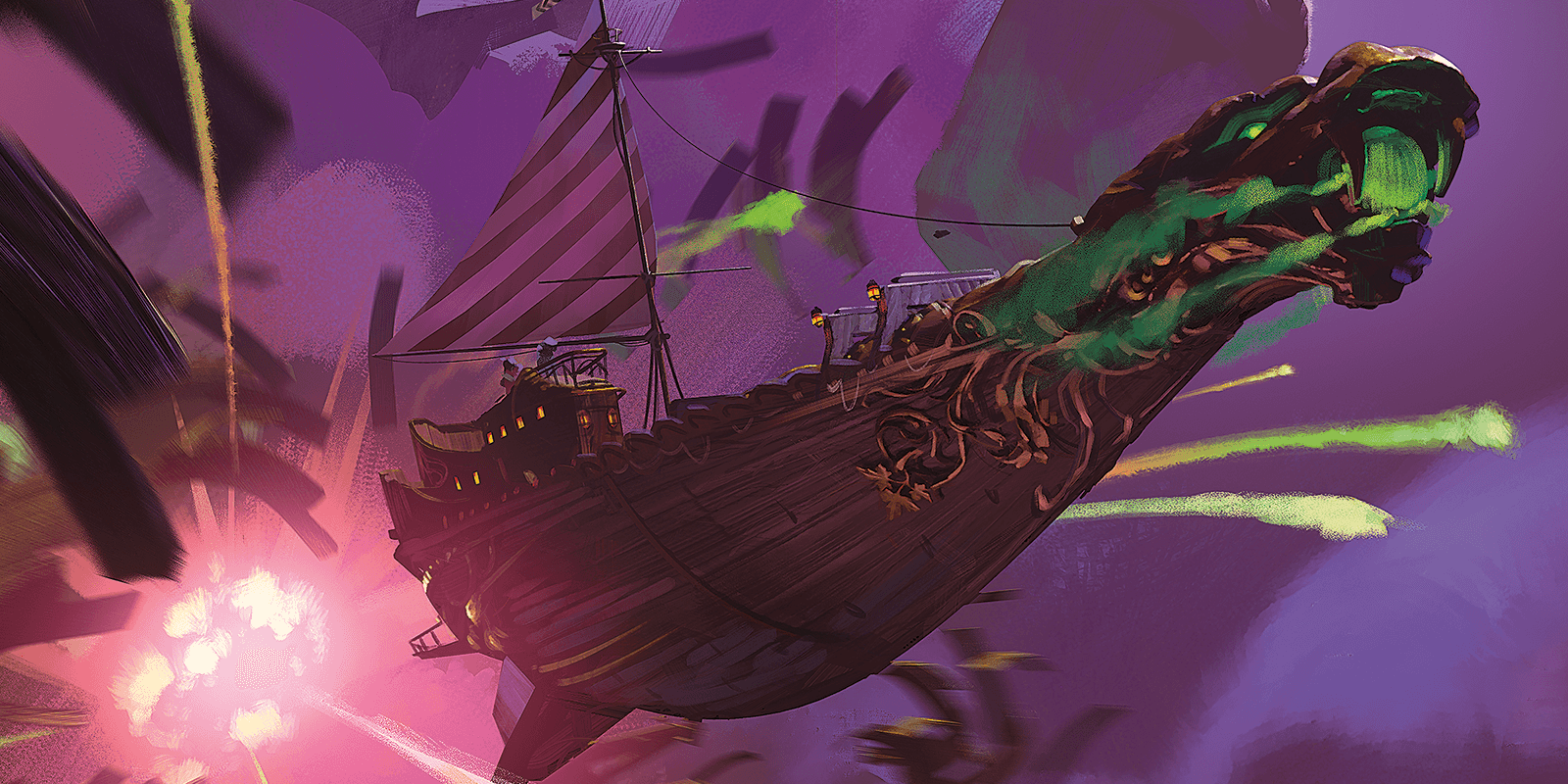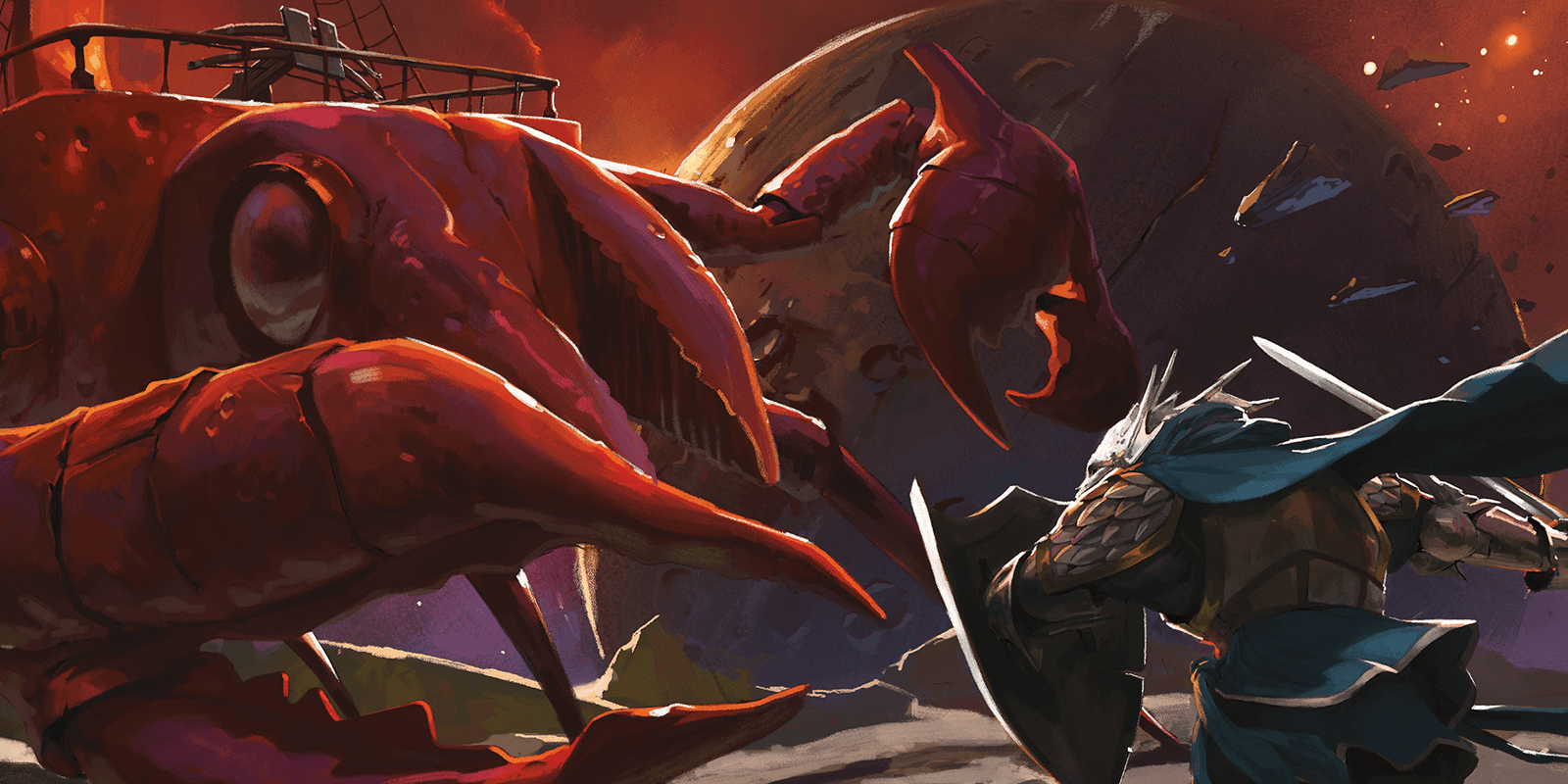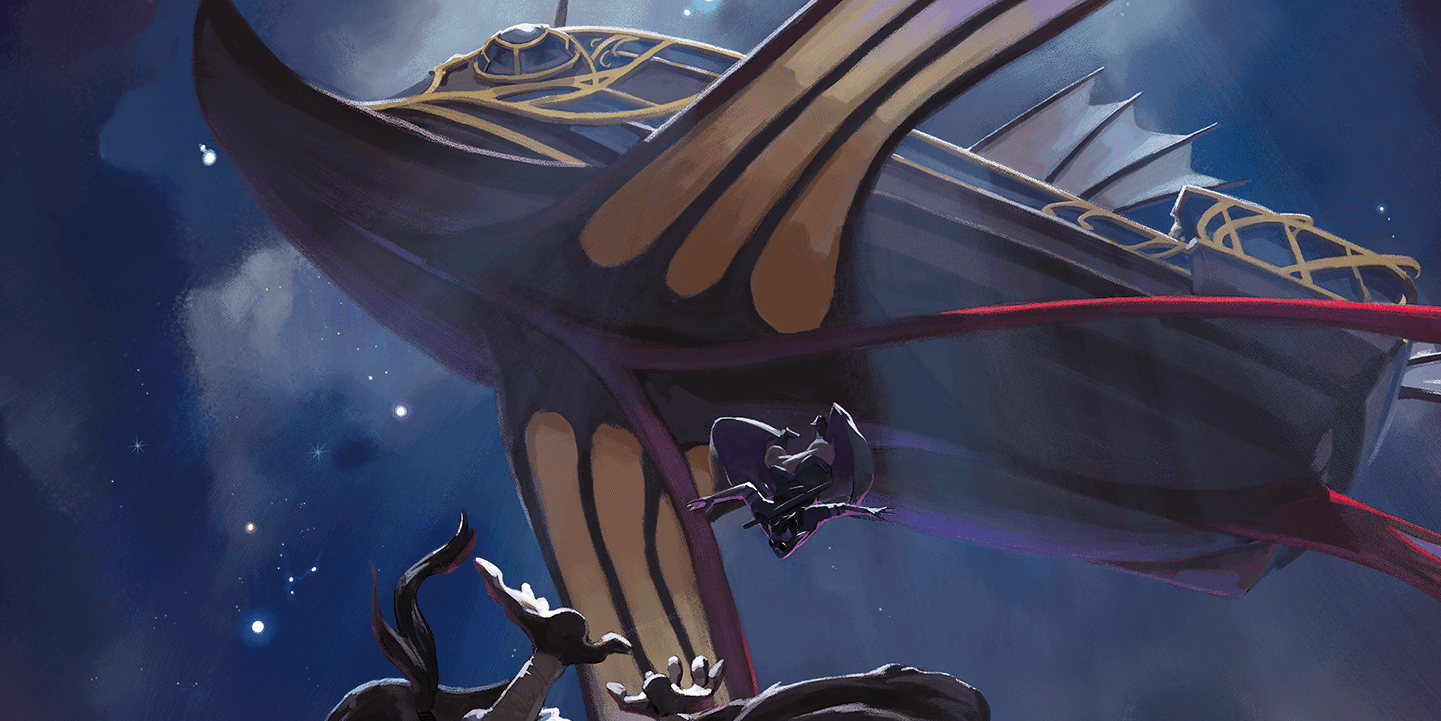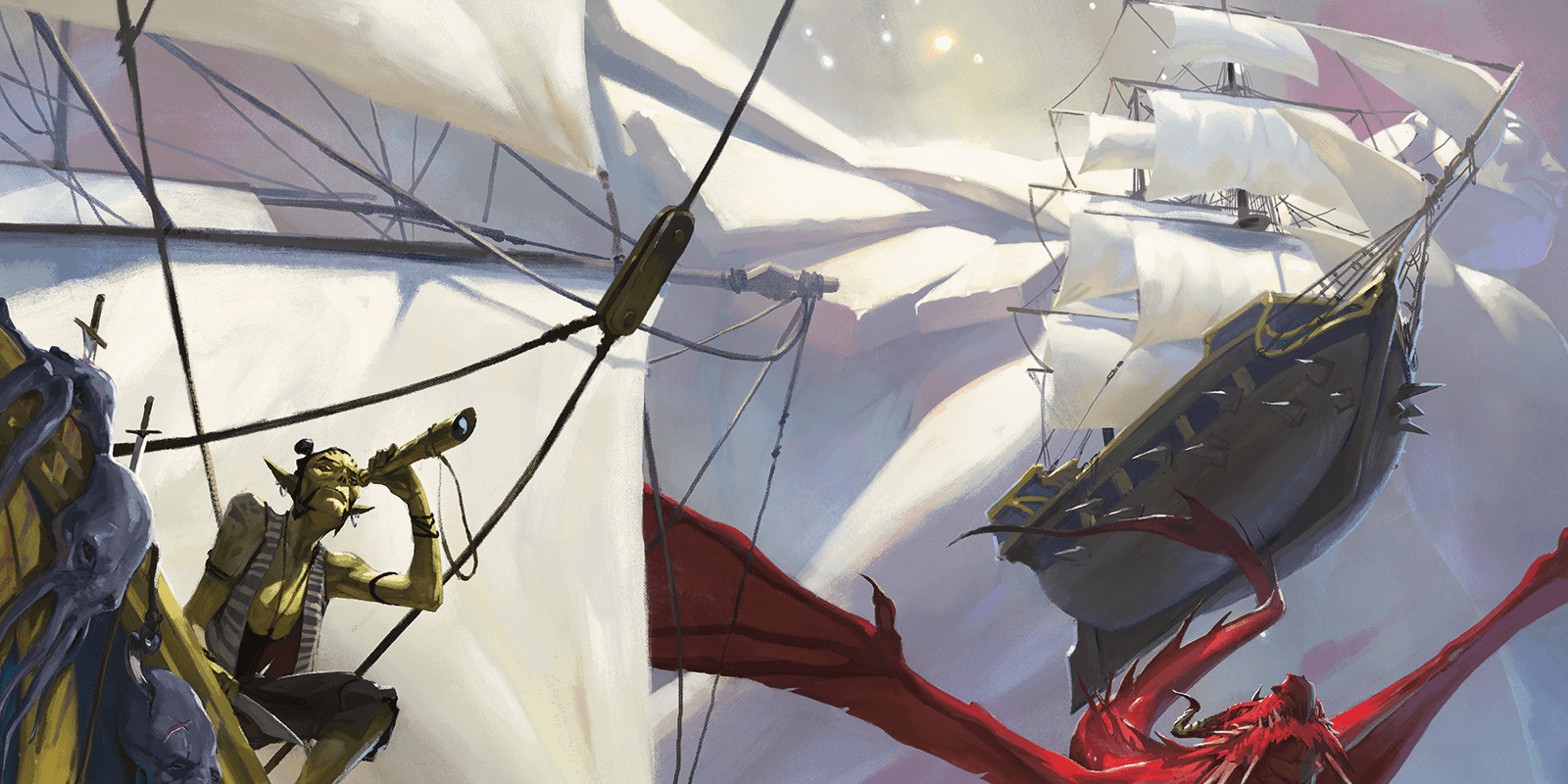The release of Spelljammer for Dungeons & Dragons fifth edition has been met with some controversy. Chief among the issues that many veteran D&D players raise is the fact that Spelljammer ship combat has been greatly simplified from how it worked in previous editions. However, ship combat still contains some important nuances that players need to learn if they don't want their characters to end up suffocating in the cold dark of space.
While ship movement, weapons, and the composition of some ships is not as varied as it once was, Spelljammer ship combat is much more digestible for players now than it ever was back in the day. Furthermore, as we'll see below, it introduces a handful of interesting complications for players to keep in mind that separate it from your average D&D setting.
8 Roll Side Initiative For Crews Only
The Spelljammer book recommends using side initiative for all participants of ship combat, but the side initiative entry in the Dungeon Masters' Guide itself says using side initiative comes "at the risk of those combats becoming unbalanced." In order to avoid combat unbalancing, it's best to simply roll side initiative for the crews of each ship.
Meanwhile, all other combatants roll initiative as normal. This prevents combats from becoming unbalanced due to every member of a side going one after another and working together to wipe out a threat before it gets a turn to make a move. Rolling side initiative for the crews takes a load off of the DM's shoulders while maintaining the balance of the combat for all other participants.
7 Protect Your Crew And Attack The Enemy Crew
A ship is only as good as its crew, and that's doubly true when we're talking about sailing through space. Each spelljamming ship is equipped with ballistae, mangonels, and sometimes other weapons that require multiple crew members to man them in order for them to fire every turn.
While player characters can choose to man the weapons of a ship, chances are they are better off using their own attacks, spells, and abilities to assail the enemy ship or defend your own from an incoming boarding party.
During spelljammer ship combat, your crew are highly prized targets for the enemy as taking them out will disable the weapons of your ship. Consequently, it's important to protect your crew from any threats coming towards them or else your ship's weapons are going to go offline.
In the same vein, attacking the enemy crew will disable the weapons of the opposing ship. As a result, it's useful to take them out when the opportunity presents itself.
6 Board The Enemy Ship
You can board the enemy ship by taking the ready action to move from your ship to the enemies' when your spelljammer comes up alongside it or vice versa. Notably, doing so requires you to use your entire turn and reaction to successfully get aboard the enemy ship. While this is certainly an expensive cost, if you don't ready an action to board when the ships come up alongside one another, they might drift apart again before your next turn comes up.
Ultimately, the best way to board an enemy ship depends on the situation. Sometimes, initiative will shake out so that the character controlling your spelljamming vessel goes before you and can move the ship alongside the enemy ship prior to your turn. Other times, you'll have to take the ready action to ensure you can get across.
5 Watch Out For The Characters Controlling the Spelljammers
The movement of a vessel is tied to the character attuned to the spelljamming helm of each ship. As a result, if the character who is attuned to the spelljamming helm goes down, the ship's movement is completely disabled. For this reason, it's important to protect whoever is controlling your own ship in order to avoid it from becoming a sitting duck.
At the same time, identifying who is controlling the enemy spelljammer is incredibly helpful if you can manage to then take them out. Notably, only spellcasters are capable of attuning to a helm, so going for the spellcasters first is a great idea. However, your enemies will also be aware of this fact, so take caution in protecting your own spellcasters.
4 Knock Enemies Into The Gravity Plane
Each ship has a gravity plane, which is an imaginary horizontal line that passes through the ship and controls the ship's gravity. Gravity falls towards the line from both sides of the ship's gravity plane. Consequently, someone who falls off of a ship and into the gravity plane will end up helplessly oscillating between the two sides of the plane.
Knocking enemies into a ship's gravity plane is a great way to prevent them from engaging in melee while simultaneously turning them into easy targets for ranged attacks. Enemies who rely on melee attacks are especially susceptible to this tactic, so don't forget to take advantage of it when possible.
3 Crashing
Instead of coming up alongside an enemy spelljammer, you can also choose to crash into it. The character controlling the ship will have to successfully make an attack roll while adding the proficiency of their spelljammer ship in order to do so, and both ships will take damage from the collision based on the size of the object they collided with.
In summary, crashing is a great strategy if you're on the bigger spelljamming ship. Alternatively, some ships, such as the Shrike come with built-in battering or piercing ram capabilities that override normal crashing rules.
A successful attack with one of these weapons will deal massive damage to the opposing spelljammer while only hurting your own ship half as much. Additionally, crashing also provides you with an opportunity to board the enemy ship.
2 Overlapping Gravity Planes
One thing to watch out for when boarding enemy ships or planning a potential crash is the result of overlapping gravity planes. When two ships make contact with one another, the gravity plane of the ship with the higher hit points overtakes the gravity plane of the other ship while the ships remain in contact.
This means that colliding with an opposing ship at certain angles might cause the entirety of your own crew or the enemy crew to suddenly fall as the gravity plane of their ship is overtaken. This is arguably the most complicated topic in all of spelljamming ship combat, and there are all kinds of scenarios and collision courses that will result in entire crews suddenly falling off of their spelljammer and into the gravity plane, deck, or hull of the enemy ship.
The most important thing to keep in mind is that larger spelljammer vessels always have more starting hit points, so be wary of crashing into them unless you've already dealt the ship heavy damage from afar.
1 Spelljamming Duels
A less common and quite expensive tactic that experienced spelljammer vessels might use involves bringing a spelljamming helm onto the enemy vessel and trying to take control of the ship. In such cases, each ship attuned to a helm on the vessel will make a Constitution check.
The spelljammer who rolls higher assumes control of the ship. Additionally, the ship that lost the duel loses control of the ship, becomes unattuned from their spelljamming helm, and immediately suffers 1d4 levels of exhaustion.
After such a duel, the creature who lost the duel cannot attune to a spelljamming helm again until they've been cleared of all of their levels of exhaustion. If you can afford to purchase an extra helm, this is a risky tactic that will undoubtedly take many enemies by surprise as you suddenly take control of their ship. Just don't be surprised if your dungeon master decides to spring this expert maneuver on you first.


.jpg)






